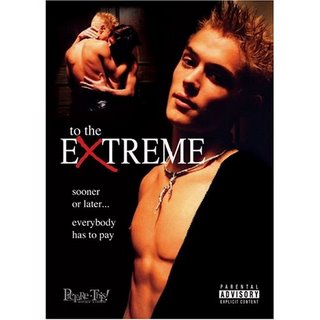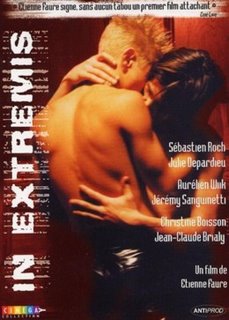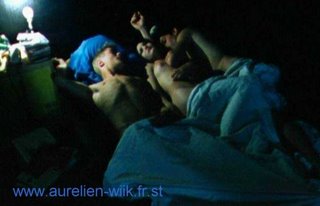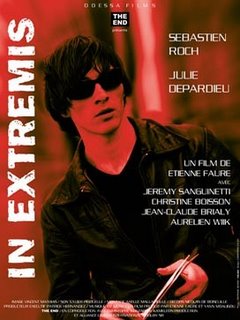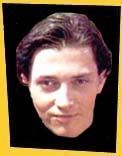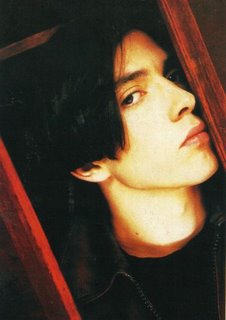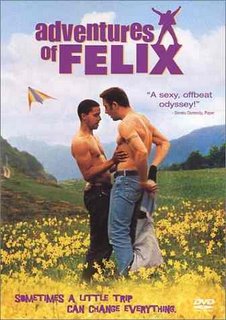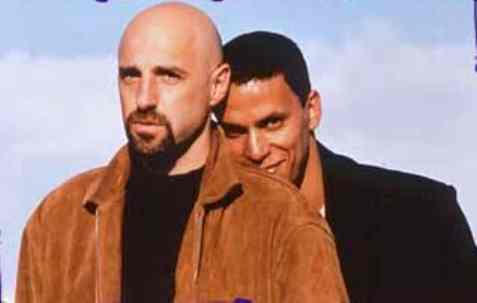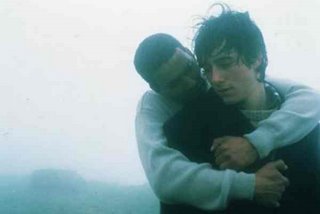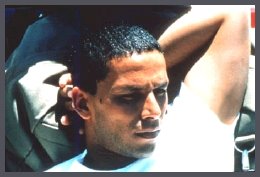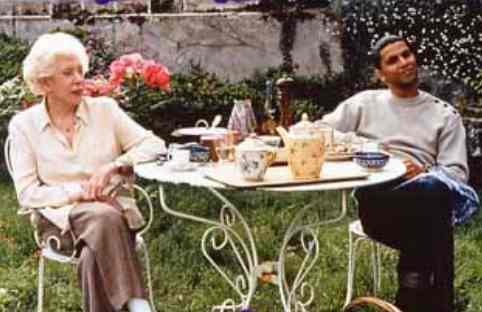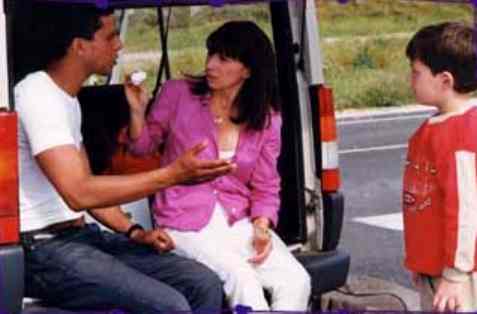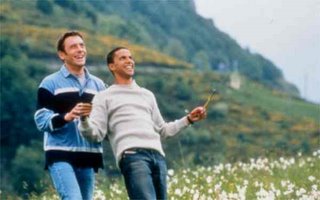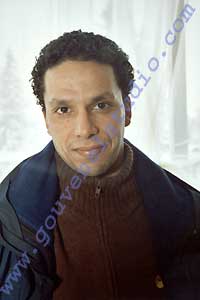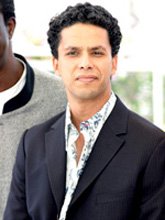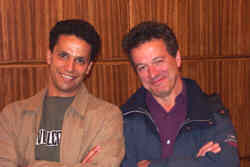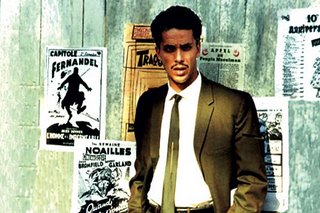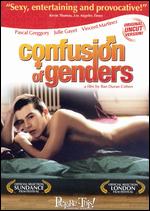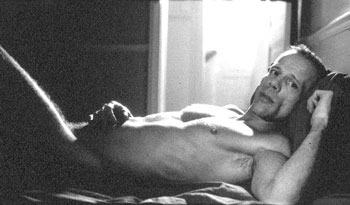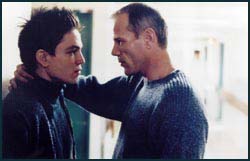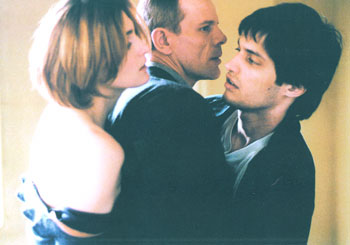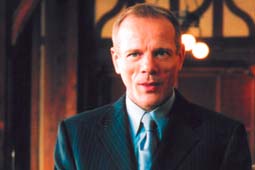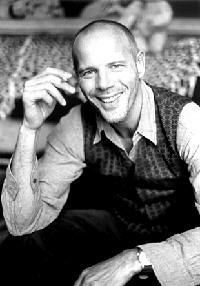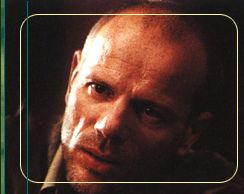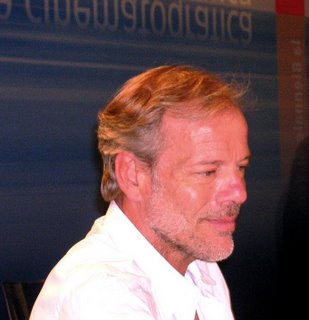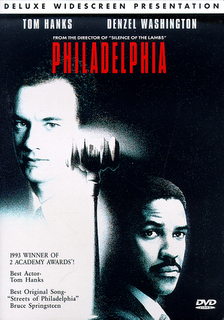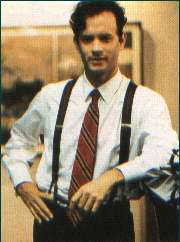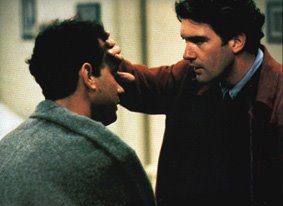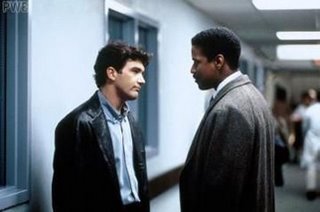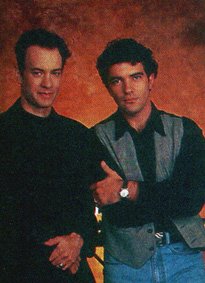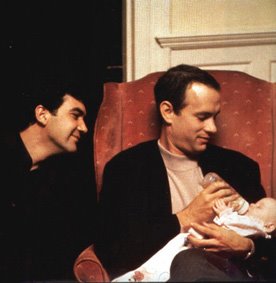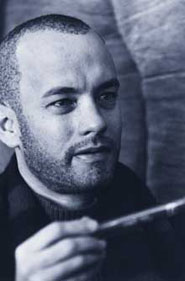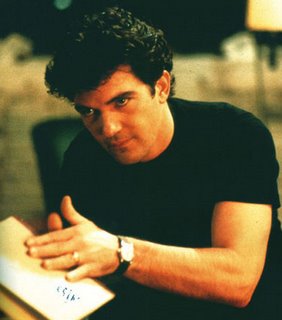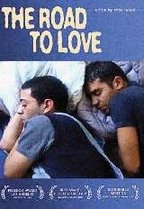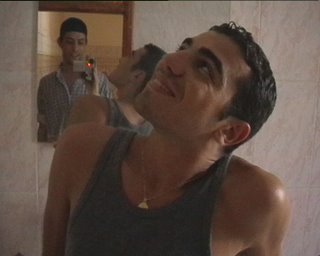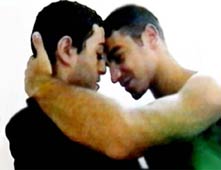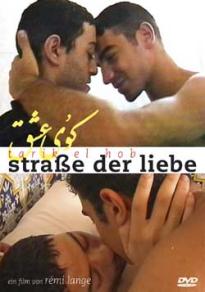Love Forbidden
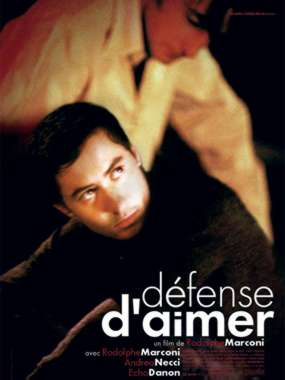
Love Forbidden
(2003)
'Defense d'Aimer'
Italian
Running Time: 96 minutes
Distributor: Strand Releasing
Cast: Rodolphe Marconi (Bruce), Andrea Necci (Matteo), Echo Danon (Aston), Orietta Gianjorio (Orietta), Herve Brunon (Germain), Irene D'Agostino (Irene), Maria Teresa De Belis (Maria Teresa), Tornazo D'Ulisia (Tomaso)
Director: Rodolphe Marconi (2001's 'This is my Body')
Screenwriter: Rodolphe Marconi (cowriter of 'This is my Body')
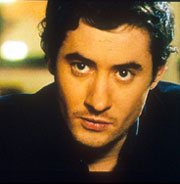 After the death of his brother and the end of his relationship with his girlfriend, Bruce (Rodolphe Marconi) travels to Rome to spend the whole year at the Medici Villa, away from his world and from what he is accustomed. As the days pass, he learns how to feel comfortable in this new imposing décor, between a magnificent and austere palace and mesmerizing gardens.
After the death of his brother and the end of his relationship with his girlfriend, Bruce (Rodolphe Marconi) travels to Rome to spend the whole year at the Medici Villa, away from his world and from what he is accustomed. As the days pass, he learns how to feel comfortable in this new imposing décor, between a magnificent and austere palace and mesmerizing gardens.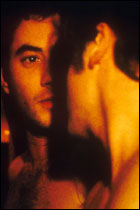 He meets another resident, Matteo (Andrea Necci), a young Roman, who is an office intern at the Villa. Matteo grows increasingly involved in Bruce's life. He shows up at Bruce's house without being invited, and takes Bruce on a tour of Rome, showing him the churches, the paintings, and the fountains. Bruce, who feels both moved and disturbed by Matteo's similarities with his brother, falls under Matteo's influence and into an ambiguous relationship with him. Then a newcomer to the Villa, a writer, fascinated by serial killers disrupts their world. At this point, Bruce can no longer reverse what has happened and gets mired in his own confusion and insanity.
He meets another resident, Matteo (Andrea Necci), a young Roman, who is an office intern at the Villa. Matteo grows increasingly involved in Bruce's life. He shows up at Bruce's house without being invited, and takes Bruce on a tour of Rome, showing him the churches, the paintings, and the fountains. Bruce, who feels both moved and disturbed by Matteo's similarities with his brother, falls under Matteo's influence and into an ambiguous relationship with him. Then a newcomer to the Villa, a writer, fascinated by serial killers disrupts their world. At this point, Bruce can no longer reverse what has happened and gets mired in his own confusion and insanity.Reviews
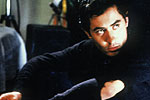 "A grieving art student (French writer-director Rodolphe Marconi) leaves his girlfriend behind in Paris to live and study in Rome, where he falls under the mysterious charm of a romantic young man (Andrea Necci). Dreamy tale benefits from a spare, intimate visual style, but that hardly compensates for the overly elliptical narrative."
"A grieving art student (French writer-director Rodolphe Marconi) leaves his girlfriend behind in Paris to live and study in Rome, where he falls under the mysterious charm of a romantic young man (Andrea Necci). Dreamy tale benefits from a spare, intimate visual style, but that hardly compensates for the overly elliptical narrative."- New York Magazine (Nov. 2003)
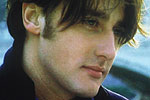 " a model French psychological drama in which very little action occurs but feelings and intuitions are documented with precision and discretion."
" a model French psychological drama in which very little action occurs but feelings and intuitions are documented with precision and discretion."- New York Times (Nov. 2003)
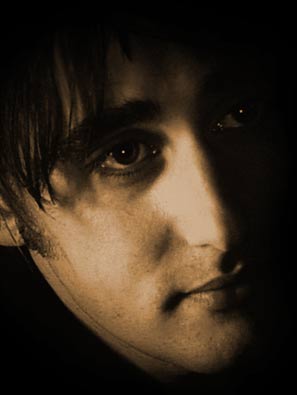
_LOVE FORBIDDEN is an intense psychological drama dealing with obsession and emotional imprisonment set against a lush and romantic Italian backdrop.
Bruce is a young French screenwriter who has won a scholarship enabling him to spend a year at Rome’s Villa Medici. The residency is an opportunity not only to learn his craft but also to escape from his troubled life – his brother, a famous writer, has died of Aids and his girlfriend has just left him. As the days pass, Bruce finds himself cut off from the outside world and his usual bearings as he becomes acquainted with the imposing setting of the magnificent, solemn palace and the other, rather detached, residents.
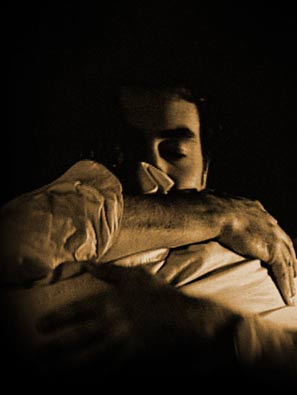 Shortly after his arrival he meets Matteo, a smolderingly handsome Italian assistant in the villa’s administrative department, who stirs sexual feelings in him that he has not felt before. Matteo gradually worms his way into Bruce’s life. He shows up at all hours of the day, drawing Bruce into a web of attraction and repulsion – a cruel initiation made up of great expectations and erotic games.
Shortly after his arrival he meets Matteo, a smolderingly handsome Italian assistant in the villa’s administrative department, who stirs sexual feelings in him that he has not felt before. Matteo gradually worms his way into Bruce’s life. He shows up at all hours of the day, drawing Bruce into a web of attraction and repulsion – a cruel initiation made up of great expectations and erotic games.Before he knows it, Bruce is consumed by an overwhelming obsession, talking to Matteo when he is not there, calling him on the phone compulsively and stalking his every move. When Aston, a writer-in-residence fascinated by serial killers, turns up and becomes Matteo’s newest interest, it sends Bruce over the edge. Everything overwhelms him and he doesn’t know where to turn, swept away by his own madness, needs and desires.
Rodolphe Marconi
 Born in 1974 in Angouleme, Rodolphe Marconi realizes with This is my body its first full-length film. This actor of formation, former pupil of the National School of the Art schools (studies since 1993), had before signed a short film, Stop (1999), for which it had been seen decreeing the Price of the jury of the short film of the Official Selection at the time of the Festival of Cannes 1999.
Born in 1974 in Angouleme, Rodolphe Marconi realizes with This is my body its first full-length film. This actor of formation, former pupil of the National School of the Art schools (studies since 1993), had before signed a short film, Stop (1999), for which it had been seen decreeing the Price of the jury of the short film of the Official Selection at the time of the Festival of Cannes 1999.“Stop” (15mn) color - France - writing with Gilles Taurand.
With Olivier Saint-Days (Laurent), Florence Loiret (Julie),
Jean-Luc Charon and François Berléand.
Rodolphe Marconi evokes Louis Garrel
 (In 1999 Rodolphe is then boarder of the Médicis Villa)“The first time that I saw it, it was in a garden of the Médicis Villa in Rome (where I remained one year). I thought that it had all the chances to be Italian. I did not know that it was the son of Philippe Garrel. One renewed contact in Paris. It came to pass the casting in the middle of 500 boys. It had a crack in the glance which does not have me escaped. At the same time, it has something of hard in its physique, its face is cut with the bill hook. This contrast gives an out of date side to the character of Antoine. And then, it is never the same one, I wanted that it plays with negligible things, very subtle. What was probably hard for him because it “was always prevented”. ”
(In 1999 Rodolphe is then boarder of the Médicis Villa)“The first time that I saw it, it was in a garden of the Médicis Villa in Rome (where I remained one year). I thought that it had all the chances to be Italian. I did not know that it was the son of Philippe Garrel. One renewed contact in Paris. It came to pass the casting in the middle of 500 boys. It had a crack in the glance which does not have me escaped. At the same time, it has something of hard in its physique, its face is cut with the bill hook. This contrast gives an out of date side to the character of Antoine. And then, it is never the same one, I wanted that it plays with negligible things, very subtle. What was probably hard for him because it “was always prevented”. ”“The Childhood of a chief” of Jean-Paul Sartre
 “The idea of this scenario left the reading of “the Childhood of a chief” of Jean-Paul Sartre. It is not a question of in no case of an adaptation but of a source of inspiration. What does it occur when one was programmed since childhood to become a head of undertaking like his father?
“The idea of this scenario left the reading of “the Childhood of a chief” of Jean-Paul Sartre. It is not a question of in no case of an adaptation but of a source of inspiration. What does it occur when one was programmed since childhood to become a head of undertaking like his father?(...) It is an intermediate space between two families, two universes, two ways of life which have interested me because it is used as amplifier with all the personal problems of Antoine: its undecided sexuality, its culpability, its Christian generosity confronted with the cruelty of a medium of which it is unaware of all. “
